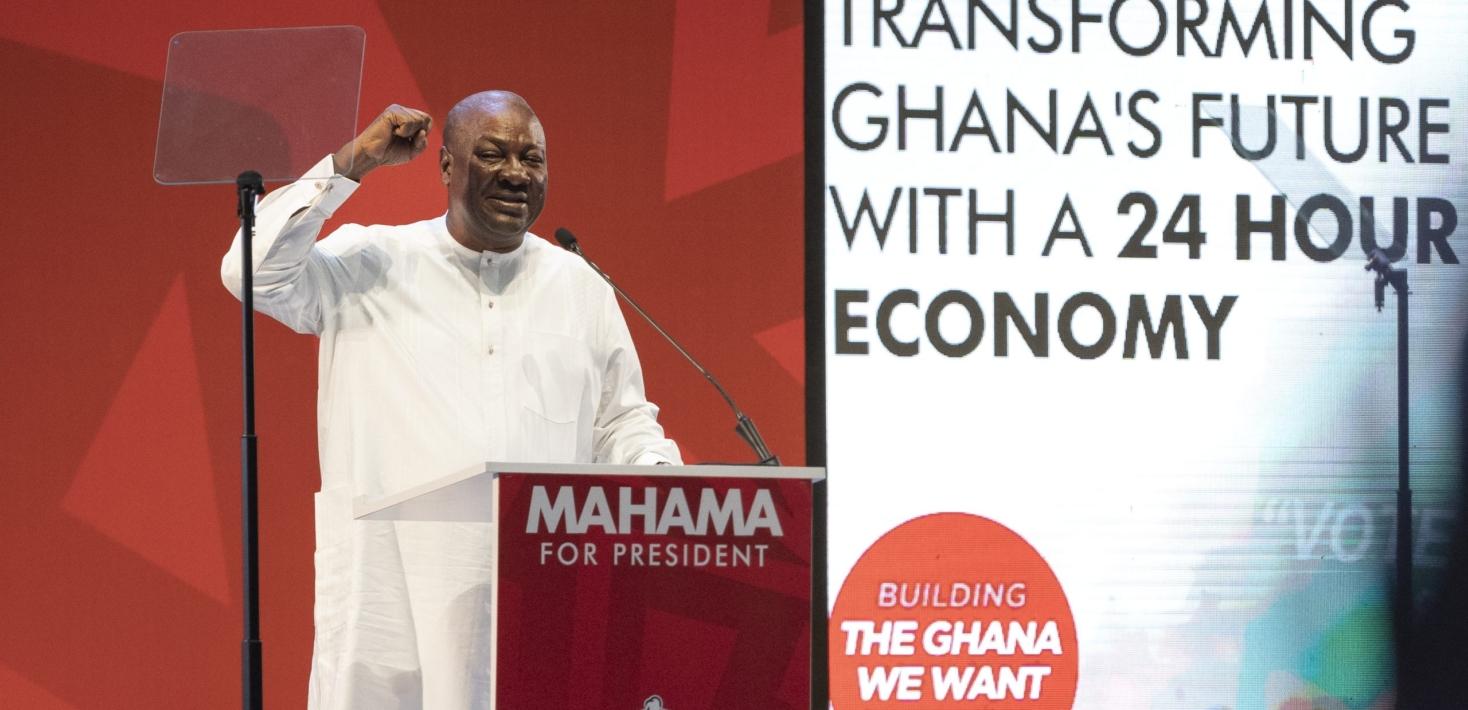Ghana’s new President John Mahama and his government must seize the opportunity of his mandate to ensure the promotion and protection of human rights including gender equality and women’s rights, the right to freedom of peaceful assembly, and the right to a healthy environment for everyone in the country, Amnesty International said today, as he is sworn into office.
“President John Mahama and his new government should work to prioritize and tackle key human rights issues head on over the coming years. This must include the persistent barriers to gender equality and the protection of women from witchcraft accusations and ritual attacks. The repression of peaceful protests last year over the environmental impact of so-called “galamsey” mining shows how important it is both to amend the Public Order Act to protect the right to freedom of peaceful assembly and put an end to illegal mining,” said Marceau Sivieude, Amnesty International’s Interim Regional Director for West and Central Africa.
Time to increase women’s participation in political and public life
In 2024, less than 15% of the 275 members of Ghana’s parliament were women. The Affirmative Action Act, passed in July 2024 and signed into law in September 2024, aims at increasing women’s participation in political, economic and societal spheres to at least 30% by 2026 and 50% by 2030.
A female Vice-President, Naana Jane Opoku-Agyemang, has been appointed for the first time. Amnesty International calls on the new government to ensure a significant increase in the representation of women in political and public life, including by taking all appropriate measures to ensure to women, on an equal basis as men, the right to participate in the formulation and implementation of government policy and to hold public office at all levels of government.
Now is the right time for the President and his government to make a clear commitment to prioritize and tackle these pressing human rights issues.
Genevieve Partington, Country Director of Amnesty International Ghana
Witchcraft accusations and ritual attacks against women must stop
Witchcraft accusations continue to be common in the Northern and North-East regions. This deeply rooted practice has led to untold suffering, discrimination, and violence, especially against older women. Hundreds have fled their villages fearing for their lives and ended up in camps.
Seventy-year-old Alimata* has been living in such a camp for 10 years after she was accused of being a witch. “I was verbally and physically abused before leaving the community. I was almost lynched. […] Then I was also beaten by my brothers because I had brought disgrace to the family,” she narrated to Amnesty International.
On 27 July 2023, the parliament passed the Criminal Offences (Amendment) Bill which criminalizes various behaviours including accusing someone of witchcraft. In December 2023, the President declined to sign it into law claiming that it should have been introduced in parliament as a public bill instead of a private member bill as it would incur cost to the state.
The new government should pass a new legislation specifically criminalizing witchcraft accusations and ritual attacks, including protective measures for potential victims. It should also establish a national strategy to educate people about the negative impact of witchcraft accusations on human rights.
Right to freedom of peaceful assembly must be protected
Several violations of the right to peaceful assembly were documented in 2024. In July, a planned protest in Accra was banned at the request of the police, who cited lack of personnel to provide security. In September, more than 50 people were arrested during protests in Accra against allegations of corruption. According to the police, they were preventing the protest to be held at Revolution Square for security reasons. To date, 31 of these protestors are still facing trial. Charges include “unlawful assembly”, “causing unlawful damage” and “offensive conduct conducive to breach of peace”. Over the last years, the security forces abused the requirement for protest organizers to provide prior notification about a planned assembly to ban or repress protests.
International human rights law protects spontaneous assemblies.
Genevieve Partington, Country Director of Amnesty International Ghana
“Throughout the previous administration, we had repeated incidents of police preventing protests. I have been arrested four times in the last two years. The law requires that police be notified at least five days before a protest. We usually notify them three months ahead, so they don’t have an excuse, but they still [stop demonstrations],” said activist Oliver Barker-Vormawor, one of the organizers of the September 2024 protest.
“The requirement of notification should not be used to restrict the right to freedom of peaceful assembly. International human rights law protects spontaneous assemblies,” said Genevieve Partington, Country Director of Amnesty International Ghana.
“We urge the government of Ghana to amend the Public Order Act to expressly include an exemption from the prior notification requirement in the case of spontaneous assemblies. The legal proceedings affecting those who have solely exercised their right to demonstrate peacefully must be dropped.”
Right to a healthy environment should be prioritized
Small scale illegal mining, also known as galamsey, has a disastrous impact on the environment. In August 2024, Ghana Water Company Ltd., the country’s main water supplier, stated that they couldn’t provide enough water supply to residents of Cape Coast and its surrounding areas because the water of the nearby Pra River was too polluted to be treated due to galamsey.
“The government must ensure mining contracts do not interfere with the right to a healthy environment and that the mining laws and regulations are fully enforced. The new President and his government must keep the promise to ban illegal and new mining activities in forest reserves, as stated in John Mahama’s first 120 days social contract,” said Genevieve Partington.
“Now is the right time for the President and his government to make a clear commitment to prioritize and tackle these pressing human rights issues.”
*Name has been changed.
Source:https://www.amnesty.org/en


